Archive
Monthly Archives: July 2019
Monthly Archives: July 2019
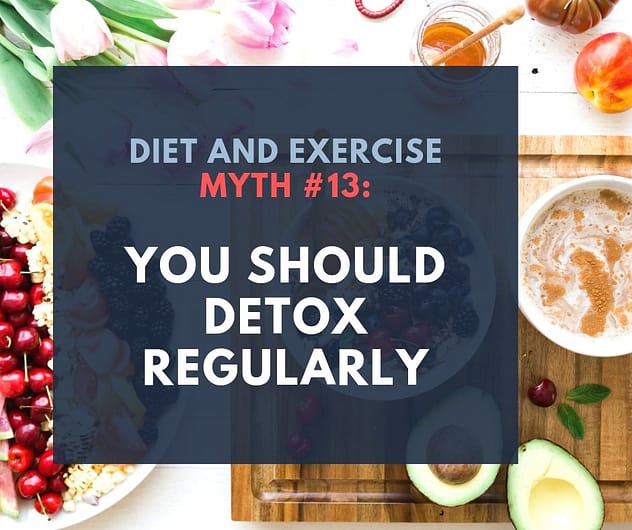

Detoxification is a seductive idea, I will admit.
The media is constantly bombarding us with genuinely frightening stories of industrial pollutants, pesticides, heavy metals, preservatives, PCB’s, and even nano-particles being rampant in our environment.
And we all grasped enough in our high school biology classes to appreciate that a couple of our internal organs have the critical task of filtering toxins from our systems. It’s easy for us to imagine pools of toxic sludge building up inside of us, and our poor livers and kidneys struggling more and more to deal with those ever-increasing stockpiles of nastiness.
It’s no surprise that the idea of flushing out those poisons is so compelling. Surely our internal organs could use some external assistance from time to time?
Now I’m not suggesting that those media stories are untrue, or that they’re not concerning. They are very concerning. But that juice cleanse, detox diet, colon cleanse, or green tea fast? That is simply not going to remove those unwanted toxins from your body.
Those practices are not likely to do you any harm either, but the detox is a medical myth.
The key to our misunderstanding here is our conceptualisation that our livers and kidneys filter toxins from our systems and then store them. Framing it like this is how we come unstuck.
The reality is that our kidneys, livers, and intestines don’t store the toxins that they’ve filtered. What they actually do is to chemically alter the toxins to turn them into harmless substances. Those toxins that can’t be chemically converted are prepared for excretion and shuttled into our lungs, bladder, or colon. From there they are expelled on a regular basis.
So if doing a detox makes you feel better, go for it. Just do some research and ensure that you don’t end up nutritionally compromised.
And do realise that you’re not flushing out toxins.
VitalCapacity.live exists to help ordinary people like you transform your mind, body and spirit. If you have any questions or feedback, please don’t hesitate to get in touch with me.
You can contact me here: Todd@VitalCapacity.live.
Check out my Body Transformation Blueprint digital course. It teaches ordinary people how to look good, feel great, and get the body you've always wanted.
Ciao for now,

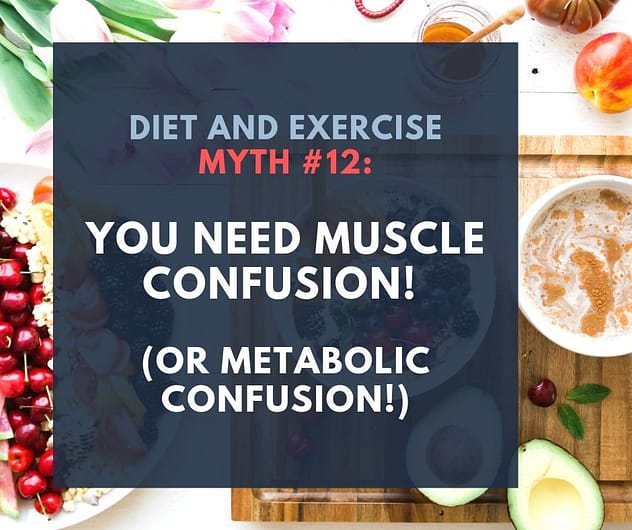

Muscle confusion is a myth. Progressive overload in a controlled caloric surplus is what makes muscles big.
The idea with muscle confusion is that you should constantly change up your workout routine so that your muscles never get a chance to adapt and stagnate.
But this idea is misguided.
Muscle adaptation is actually desirable. In fact, your muscles will become bigger and stronger as an *adaptation* to the challenge that resistance training provides. But that challenge is in the form of progressive overload, not muscle confusion.
Changing the pattern constantly, as ‘muscle confusion’ would have you do, will only deprive your muscles of the very type of adaptation that would cause them to grow big and strong. And that is adaptation to progressive overload, which equals strength and size.
Changing up your resistance training routine can be a great idea every now and again. Two good reasons to occasionally alter your routine are to keep your program interesting for you, and to break through a strength plateau.
But constantly moving the goalposts is not the path to looking good, feeling great, and having the body you’ve always wanted.
Metabolic confusion is another myth. That doesn't lead to weight loss. Consistently eating fewer calories than you burn is what causes fat loss.
Your metabolism cannot get confused. And even if it could, it is unlikely that this would work in your favor.
The best way to get your metabolism humming along optimally is to engage in regular resistance training and minimal cardio, maintain correct energy balance, and to eat in line with a macronutrient balance that supports those goals.
Metabolic confusion is not good for your metabolism, and muscle confusion is not good for your muscles. They’re both just confusion.
VitalCapacity.live exists to help ordinary people like you transform your mind, body and spirit. If you have any questions or feedback, please don’t hesitate to get in touch with me.
You can contact me here: Todd@VitalCapacity.live.
Check out my Body Transformation Blueprint digital course. It teaches ordinary people how to look good, feel great, and get the body you've always wanted.
Ciao for now,

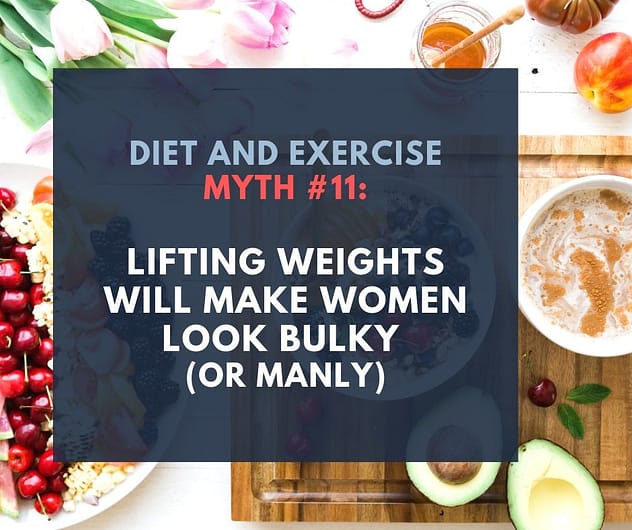

When it comes to the gym, many women have a nagging doubt dancing around the back of their minds: If I lift weights - especially heavy weights – won’t I get big and bulky and lose my femininity?
But you don’t need to stress. The reality is quite different.
For starters, those body-building men and woman who do in fact have that look, have dedicated their lives to that pursuit. They apply complete and utter dedication to it and their diets are 100% dialed in at all times. They spend hours in the gym leaving blood sweat and tears on the lifting platform.
Women don’t naturally produce enough testosterone to get to that bulky vein-popping look. And actually most men don’t either – the vast majority of the people we’re talking about here are on performance-enhancing drugs.
Trust me, none of that is going to happen to you by accident.
Here’s what *will* happen instead:
You’ll start to carry yourself differently, and people will notice that as soon as you walk into a room. Not necessarily because of the change in your physical appearance (although that might be a factor), but from something inside of you. It’s usually more about the new way that you’re carrying yourself, and the new-found confidence and composure you’ll be radiating.
People admire inner strength and self-confidence before they even notice toned arms and an athletic midriff.
VitalCapacity.live exists to help ordinary people like you transform your mind, body and spirit. If you have any questions or feedback, please don’t hesitate to get in touch with me.
You can contact me here: Todd@VitalCapacity.live.
Check out my Body Transformation Blueprint digital course. It teaches ordinary people how to look good, feel great, and get the body you've always wanted.
Ciao for now,

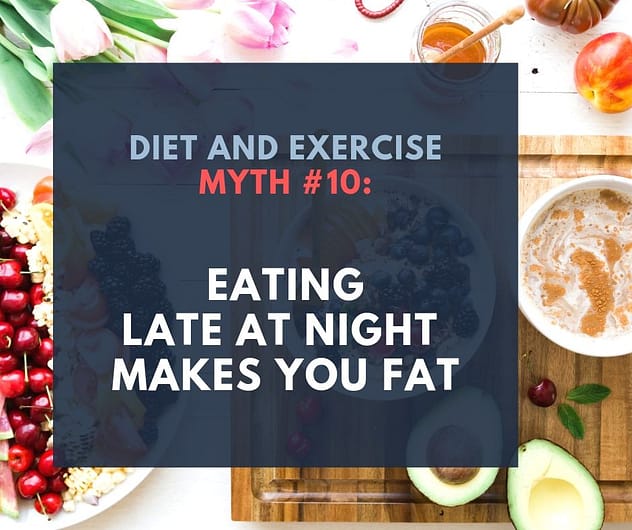

This myth may have originated at around the same time as the idea that breakfast is the most important meal of the day (which is itself a myth). The idea that eating in the morning is ‘good’ seems to have somehow morphed into the idea that eating at night is ‘bad’.
There is no science behind the idea that eating after 6pm will make you fat. A well-crafted Israeli study spent six months comparing two groups of people: those who had their biggest meal at breakfast, and those who had their biggest meal at dinner time (which was 8pm or later in this study).
Compared to the early-morning eaters, the late-night eaters got the following results:
Other studies have turned up similar results.
My message here isn’t that you should start eating late at night, but the idea that doing so will make you fat is a myth busted.
The most important ingredient in any eating strategy is compliance. Which is a very blunt word to describe consistency, and sticking with it over the long haul. If eating at night is part of that formula for you, then go ahead and do it.
Ultimately it’s how much you eat that matters for weight loss, not when you eat.
VitalCapacity.live exists to help ordinary people like you transform your mind, body and spirit. If you have any questions or feedback, please don’t hesitate to get in touch with me.
You can contact me here: Todd@VitalCapacity.live.
Check out my Body Transformation Blueprint digital course. It teaches ordinary people how to look good, feel great, and get the body you've always wanted.
Ciao for now,

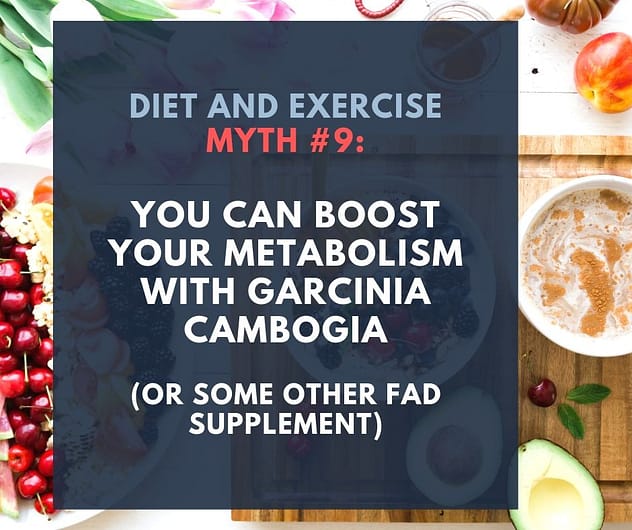

Despite its enormous popularity with marketers, Garcinia Cambogia does not provide any benefits for weight loss.
It is just one of many substances that are promoted hard by supplement companies, pharmacists and health food stores, but which have no basis in science.
In the case of Garcinia Cambogia in particular, we’ve perhaps been misled by the fact that rodent models do show some promise in this area.
Unfortunately, however, that promise has not translated across into human studies in any way. There is simply no effect on humans when it comes to weight loss.
Honestly, this should be your default position when it comes to any supplement: Don’t believe the hype, and do your own research from reputable sources such as examine.com before you part with your hard-earned cash.
VitalCapacity.live exists to help ordinary people like you transform your mind, body and spirit. If you have any questions or feedback, please don’t hesitate to get in touch with me.
You can contact me here: Todd@VitalCapacity.live.
Check out my Body Transformation Blueprint digital course. It teaches ordinary people how to look good, feel great, and get the body you've always wanted.
Ciao for now,

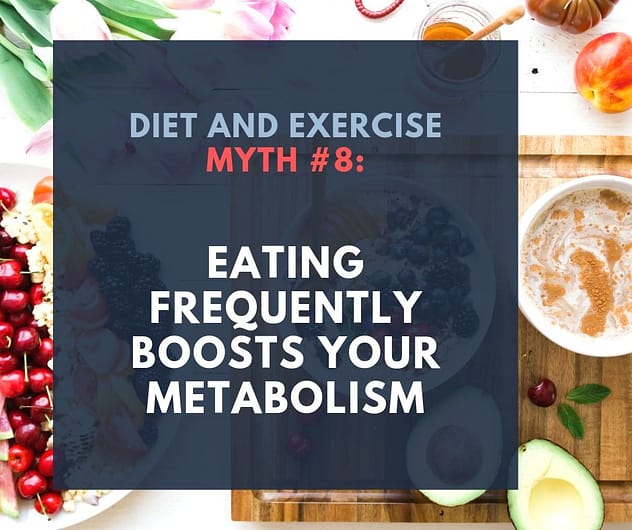

One of the most common diet myths is that you can boost your metabolism by eating many small meals throughout the day, instead of the traditional three square meals.
Not only is this idea not supported by research, but in fact the research quite clearly shows that it is simply not true. There have been numerous studies comparing different meal frequencies, and they find no significant difference in metabolic rate or fat loss.
Metabolism *is* known to increase for a period immediately after you eat. This is known as the thermic effect of food, and it is a scientifically established effect.
However, the size of the effect is defined entirely by the type and amount of food that you eat. And it doesn’t matter whether that food is eaten in two meals, four meals, six meals, or any other number of meals. As long as the macronutrient balance and the total number of calories is held the same, the frequency of meals doesn’t make any difference.
In fact, some studies have shown that people tend to eat more overall when they split it up into several smaller meals.
VitalCapacity.live exists to help ordinary people like you transform your mind, body and spirit. If you have any questions or feedback, please don’t hesitate to get in touch with me.
You can contact me here: Todd@VitalCapacity.live.
Check out my Body Transformation Blueprint digital course. It teaches ordinary people how to look good, feel great, and get the body you've always wanted.
Ciao for now,

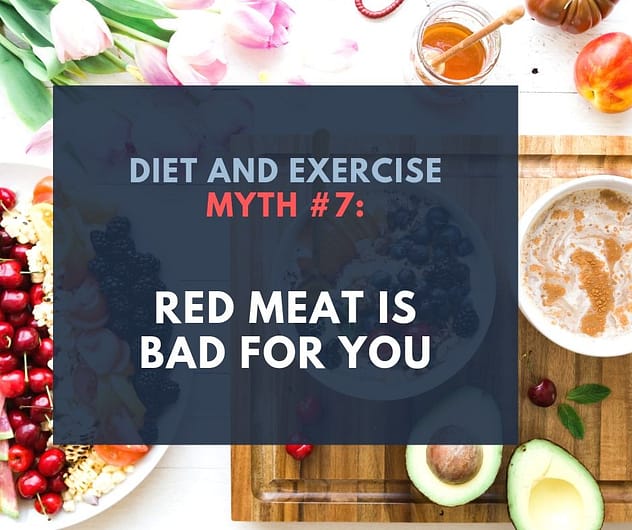

There are of course important environmental and ethical viewpoints when it comes to meat consumption. However in this myth, I’m only tackling the nutritional aspects. Those other two are bigger topics than what I can squeeze into a short post!
I’m not telling you that you need to eat red meat, but I am saying that the recent hype about how red meat is a dangerous carcinogen is just way overblown.
We humans have been eating meat for millennia, and our digestive systems have evolved to take full advantage of it. However some recent press has gotten a lot of people worried that meat is dangerous to our health.
The most important thing to keep in mind here is the huge difference between processed and unprocessed meat. Processed meat contains all sorts of chemicals that are indeed quite bad for you, such as preservatives and nitrates. These have indeed been shown to increase the risk of mortality and have been linked to some cancers.
A fresh cut of organic naturally-fed and raised beef, on the other hand, is one of the most nutritious foods you will find.
The studies that conclude that red meat is bad for you have tended to mix up both types of meat in their analysis, which just confounds the results.
So if you would normally consider yourself to be a meat-eater, but have become concerned about those reports about how meat is bad for you, it’s processed meat that you should be steering clear of. Good quality unprocessed red meat is still your friend.
VitalCapacity.live exists to help ordinary people like you transform your mind, body and spirit. If you have any questions or feedback, please don’t hesitate to get in touch with me.
You can contact me here: Todd@VitalCapacity.live.
Check out my Body Transformation Blueprint digital course. It teaches ordinary people how to look good, feel great, and get the body you've always wanted.
Ciao for now,

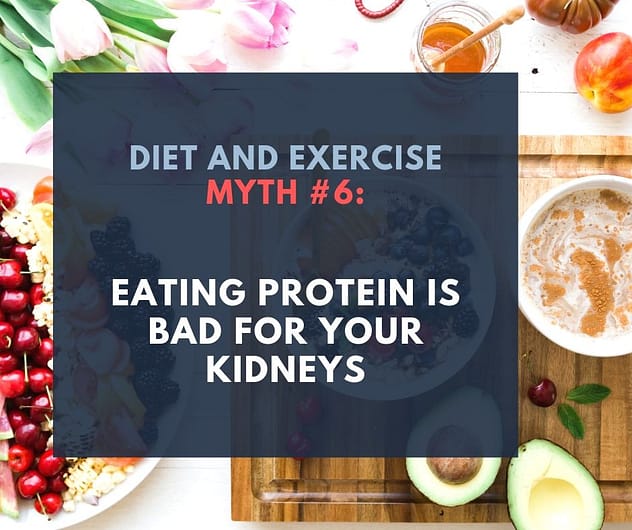

There’s plenty of talk out there about how a high protein diet is bad for your health, and how it will destroy your kidneys or that it’s bad for your bones.
But those are all myths.
Anything up to 2 grams of protein per kilo of body weight per day is fine, and the vast majority of studies show that for healthy individuals, eating up to 3 grams of protein per kilogram of body weight will cause no problems at all.
Now I’m not suggesting you should eat that much protein, mainly because it would be a waste of your money. Of all the studies that have been conducted looking into protein consumption, there really aren’t any that show you would get any benefit from consuming more than 2.2 g/kg (or 1g / lb).
But this idea that a high protein diet is bad for your kidneys is bogus.
Getting enough protein is one of the most important things you can do for yourself when you’re on a mission to lose body fat and gain lean muscle mass.
VitalCapacity.live exists to help ordinary people like you transform your mind, body and spirit. If you have any questions or feedback, please don’t hesitate to get in touch with me.
You can contact me here: Todd@VitalCapacity.live.
Check out my Body Transformation Blueprint digital course. It teaches ordinary people how to look good, feel great, and get the body you've always wanted.
Ciao for now,

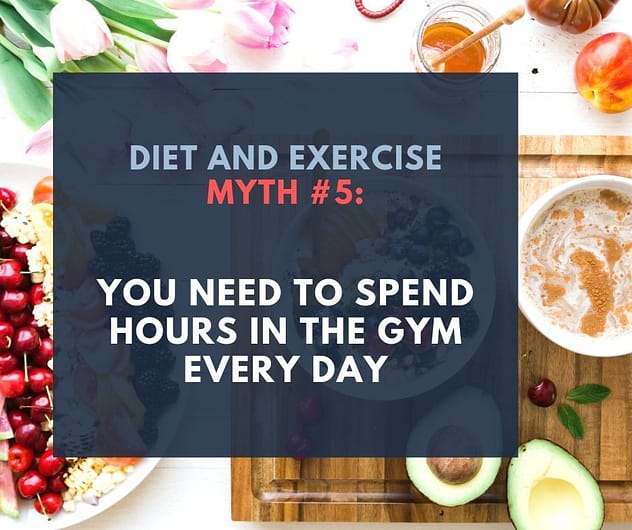

Many people assume (or you might have been told) that you need to spend hours each and every day grinding it out in the gym if you want to lose body fat or gain muscle.
There are two main points to make here:
Firstly, cardio isn’t the best use of your time when it comes to losing body fat. There is scope for a small amount of cardio in a well-crafted body recomposition programme, but you’ll get far more bang for your buck by simply lifting heavy things. And that goes for anybody, male or female.
Cardio just isn’t the best way to go here. Building muscle not only burns significant calories, but it is also is one of the few things you can do that will actually increase your metabolism. So the fat-melting benefits of having lean muscle mass will be accruing to you 24 x 7, even when you’re sleeping.
Secondly, when it comes to lifting heavy things (also known as resistance training), you don’t actually need to spend hours and hours in the gym every day to get the body you want. In fact, you can do very well indeed with just 45 minutes of weight lifting or body weight exercises, three or four days a week.
And just so you know, that’s also about the amount of time that I spend in the gym myself. It varies week-to-week, but most weeks I spend less than four hours doing relatively high-intensity weight lifting, plus a small amount of cardio.
And of course, there are many shortcuts and strategies you can employ to incorporate additional movement into your day-to-day routines. Think about little things like getting off the bus or train one stop short of your destination and walking the rest of the way. Or taking the stairs instead of the lift. It all adds up, and when you’re layering things by increasing your energy expenditure while doing things that you needed to do anyway (like get to a different floor), it hardly takes any time at all.
VitalCapacity.live exists to help ordinary people like you transform your mind, body and spirit. If you have any questions or feedback, please don’t hesitate to get in touch with me.
You can contact me here: Todd@VitalCapacity.live.
Check out my Body Transformation Blueprint digital course. It teaches ordinary people how to look good, feel great, and get the body you've always wanted.
Ciao for now,
